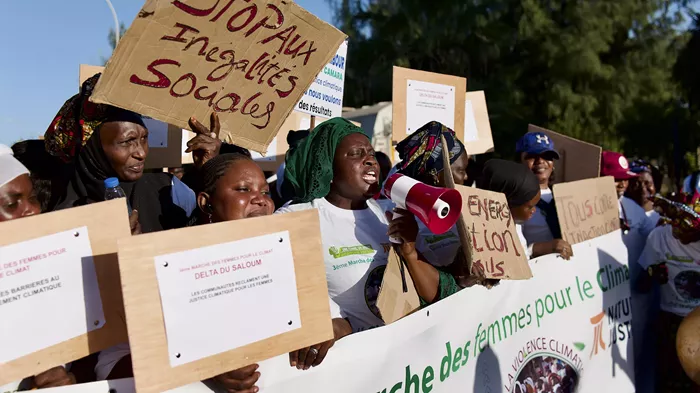The recent UNFPA report highlights a troubling intersection between climate crises and intimate partner violence (IPV) in sub-Saharan Africa, projecting a dramatic increase in the number of women and girls affected by domestic abuse by 2060 due to climate change. Here’s a breakdown of the key points and implications of the report:
Report Findings
Projected Increase in IPV: By 2060, nearly 90 million more women and girls in sub-Saharan Africa are expected to experience IPV, a substantial rise attributed to the impacts of climate change.
Exacerbation of Existing Issues: Climate emergencies like droughts, floods, and earthquakes are seen as exacerbating pre-existing conditions of gender-based violence rather than being direct causes. Factors such as displacement, loss of social support, and increased stress from food insecurity and financial pressures can heighten the risk of violence.
Impact of Extreme Heat: Some studies suggest a link between extreme heat and increased aggression, potentially contributing to higher rates of violence during heatwaves.
Scenarios and Projections:
Best-Case Scenario: With strong climate action and improved socioeconomic conditions, the prevalence of IPV among women aged 15 to 49 could decrease from 24% in 2015 to 14% in 2060.Worst-Case Scenario: Without significant changes, IPV rates would remain high, but the absolute number of affected individuals would rise significantly, reflecting an increase of 90 million people.
Policy Implications
Need for Comprehensive Climate Action: The report underscores the importance of integrating gender considerations into climate action plans. Effective emission reduction and development strategies are crucial in mitigating future rates of gender-based violence.
Broader Regional Risks: Although the report focuses on sub-Saharan Africa, it highlights a global issue. IPV affects 27% of women and girls worldwide, with the potential for similar trends in other regions affected by climate crises.
Challenges in Data Collection: Gender-based violence is often underreported due to stigma and ineffective law enforcement, particularly in cultures where family honor and dignity are heavily emphasized. This underreporting complicates efforts to support victims and address violence.
Call to Action
Enhanced Research and Support: There’s a need for more comprehensive research in regions deeply impacted by climate change, such as Africa and Southeast Asia, to better understand and address the specific pressures faced by women in these areas.
Support for Displaced Victims: Addressing the long-term needs of displaced women and girls, who may face ongoing financial dependence and housing instability, is critical for preventing the deterioration of their situations.
The report serves as a crucial reminder of the far-reaching impacts of climate change beyond environmental concerns, emphasizing the need for integrated strategies that address both climate and gender-based violence to protect vulnerable populations.
Related articles:
Mpox Vaccine Delivery From Eu Reaches Drc As Who Declares Emergency


